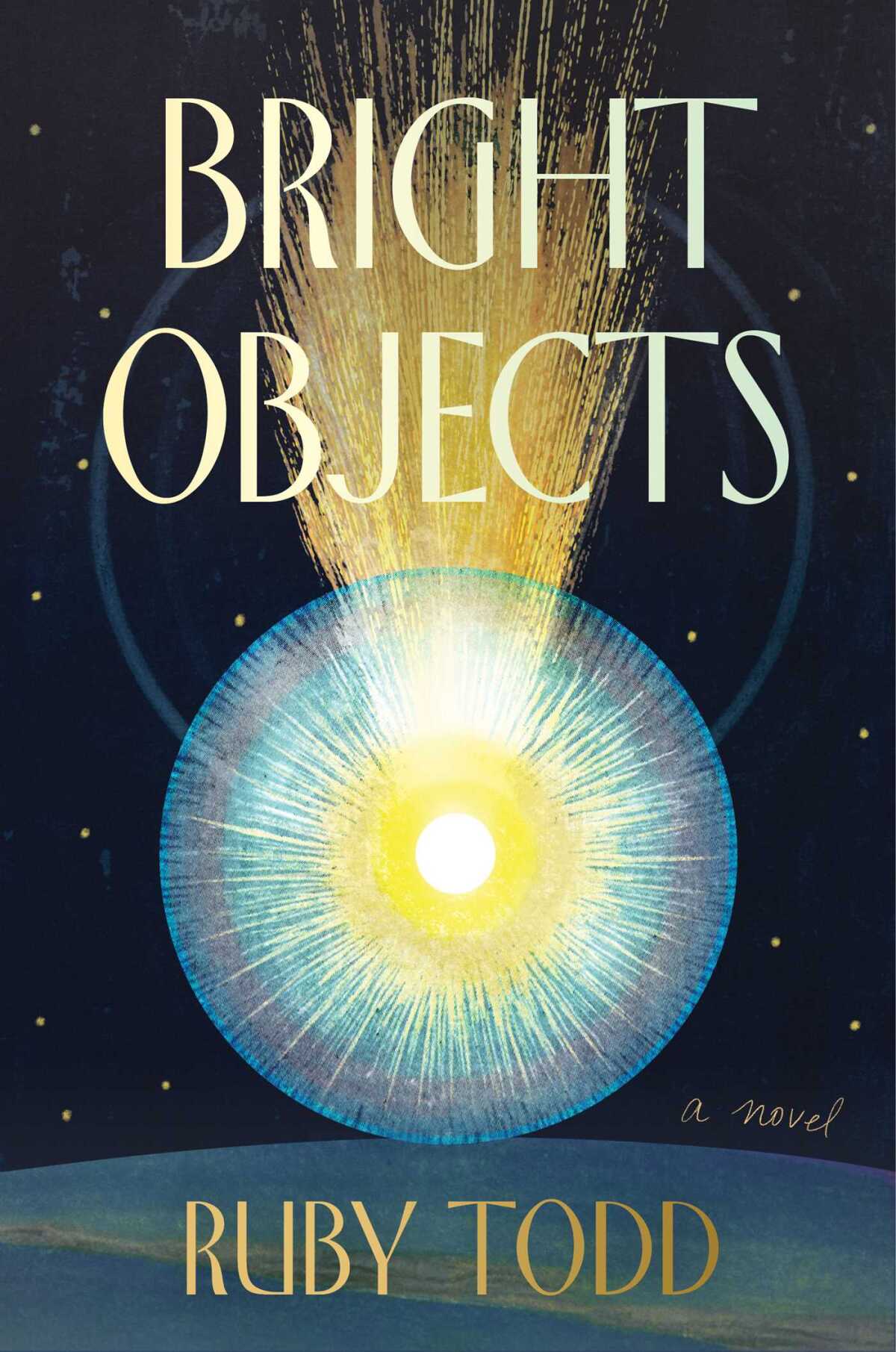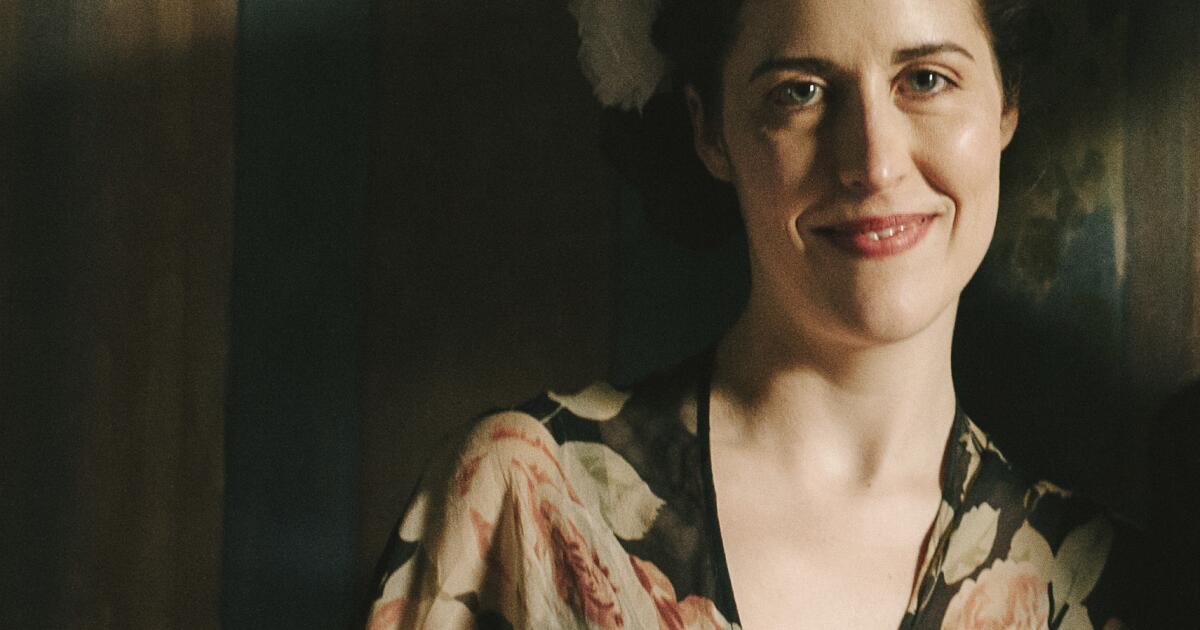Book Review
Bright Objects: A Novel
By Ruby Todd
Simon & Schuster, 352 pages, $28.99
If you buy books linked on our site, The Times may earn a commission from Bookshop.org, whose fees support independent bookstores.
Bright objects can illuminate, but also blind. That’s the paradox embedded in the title of Ruby Todd’s smart, propulsively readable debut novel about a brilliant comet, a grieving widow, a troubled romance and a burgeoning cult.
“Bright Objects” is set in the mid-1990s in Jericho, a small Australian town where the Comet St John is destined to make its closest, most stunning approach to Earth. Throughout history, people have seen comets as portents of triumph or disaster. In Jericho, too, Comet St John’s looming appearance seems resonant with meaning. It coalesces a group of true believers who will move from meditation to dangerous supernatural reveries.
Todd’s narrator, Sylvia Knight, first encounters Joseph, the group’s prophet, at the funeral home where she works. He is planning an elaborate sendoff for his late mother. Sylvia understands grief. She is still mourning the accidental death, two years earlier, of her husband, Christopher.
She was driving at the time; Christopher was her passenger. They were hit by an oncoming, speeding vehicle that then drove away. A witness to the accident has proved unhelpful. And Sylvia is convinced that the too-powerful-to-indict culprit is the town’s police chief, a supposition that renders her increasingly unhinged, even violent.
As the investigation founders, and Sylvia finds existence without Christopher unbearably grim, she carefully plans her suicide. What remains to tie her to her ruined life, she reasons, apart from a beloved cat and Christopher’s equally devastated mother, Sandy?
But then Sylvia finds a stronger impediment to self-inflicted death: her attraction to an American astronomer, Theo St John, discoverer of the eponymous comet.
Theo, whom she also meets at the funeral home, seems ambivalent about launching a romance. Sylvia attributes his approach-avoidance behavior to the notion that he, too, is in mourning. (But for whom? Or what?) In any case, his pending return to the States makes a future together unlikely.

As the plot unfolds, Sylvia’s reliability as a narrator comes into question. She may not intend to mislead. But later she’ll admit to her “blindness” and “instinct for grievance and self-punishment.” Todd’s framing of the book, as the tale of her narrator’s two deaths, adds to the misdirection. Is Sylvia somehow narrating the story from the great beyond? That’s been done before, notably in Alice Sebold’s “The Lovely Bones.”
An Australia-based writer and the recipient of several literary prizes, Todd knows how to draw readers in. Her prose is elegant but accessible, her narrative embraces both mystery and quick plot pivots, and her protagonist, though flawed, remains sympathetic. And Todd’s grip only tightens as the story turns downright chilling.
“Bright Objects,” its acquiring editor says, was “loosely inspired” by Heaven’s Gate, a California-based cult whose members’ mass suicide was tied to the appearance of a comet. The comet in “Bright Objects” is fictional. But the emotions it provokes are reminiscent of the awe inspired by other heavenly phenomena, such as the recent solar eclipse.
Here the comet — the book’s ultimate, but not sole, bright object — serves as both symbol and emotional catalyst. “Like the indicator dye used by doctors to reveal disturbances in the body,” Todd writes, “the comet seemed to be revealing us all to ourselves and each other, in various registers of fear, hope, and hubris, like clusters of divergent cells within the same host.” Elsewhere, Sylvia likens it to “an urgent hieroglyph from a language I didn’t speak” and suggests that it represents “the crack between logical reality and oblivion.”
While Sylvia is entranced by both the comet and its discoverer, she also responds initially to Joseph’s cultish appeal. It is rooted in what she calls “a longing to prove the real illusion was the one that said we were only this — only organic forms waiting to expire, accidents of nature appearing and disappearing without reason or design in an indifferent universe.” To Joseph, she suggests, “the supposed divide between the physical and the spiritual … was no true divide at all.” Anyone longing for communion with a lost loved one might find such a conviction seductive.
But that doesn’t make it true. In the end, though her prose wrestles with its enchantments, Todd is skeptical of the supernatural. Still, she embraces the idea that life can be mysterious, unpredictable, complex. And she doesn’t entirely renounce the notion of destiny.
Take, for instance, that deadly car accident, and all the consequences that ensued. A single different action, Todd writes, at her most lyrical, “might have been enough to divert the particular physics of what was about to happen, the collision of objects and lives in space and time, the instant disappearance of certain futures in favor of others, as we each were moved like pawns in a game of celestial chess, toward that bend in the road under that dark country sky.”
Julia M. Klein is a cultural reporter and critic in Philadelphia.

